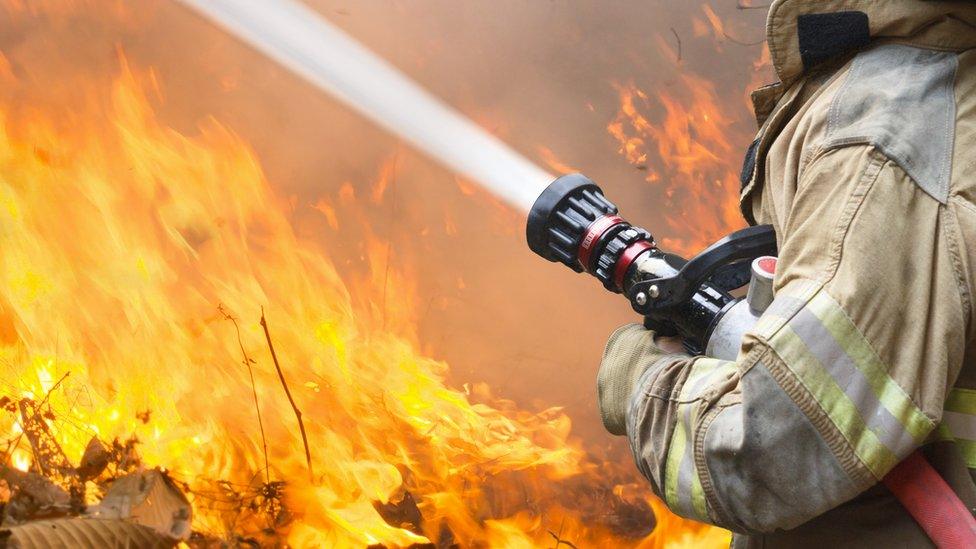Fire service facing £389m vehicle and property repairs bill
- Published
- comments
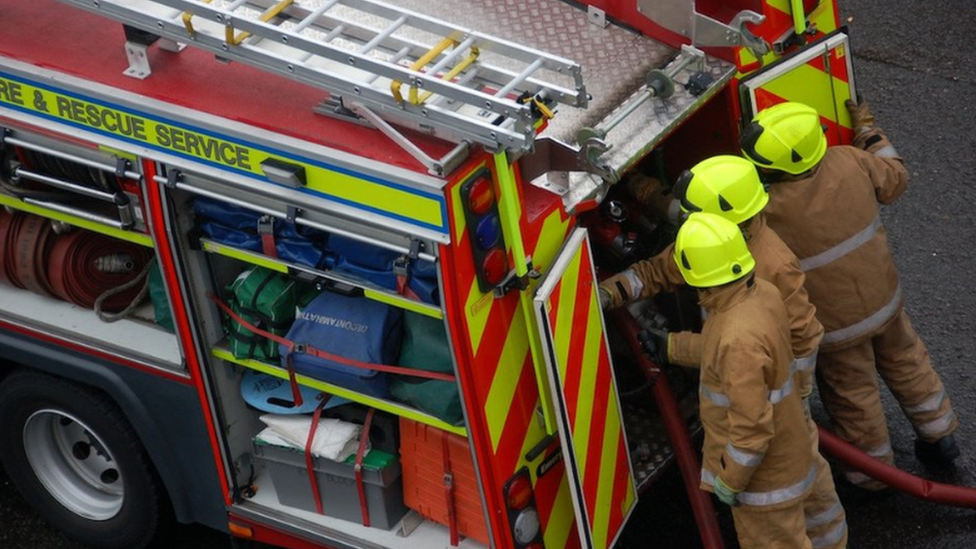
Scotland's fire service may have to close stations and cut vehicles in order to meet a massive repairs bill, a spending watchdog has warned.
Audit Scotland said the Scottish Fire and Rescue Service faced a £389m backlog in vehicle and property costs.
A report said annual investment of £80.4m was needed to bring assets up to "satisfactory" standards.
The Scottish government said the report recognised "real progress" since the formation of a single national force.
Audit Scotland said the funding gap was "insurmountable" without further transformation and investment, and warned of an increased risk of fire engines breaking down.
It said £37.8m a year of investment was needed just to ensure the situation did not worsen further.
Without extra capital funding, the current maintenance backlog would reach £406m over the next 10 years, it said.
Audit Scotland said it was "imperative" that the service reviewed and reshaped its capital assets, which could mean "closing, moving, sharing or changing the use of some of its properties as well as considering the range and deployment of its fleet of vehicles".
Pay and conditions
The report praised the service's "slow but steady" progress since integrating the eight former services into a single body five years ago, and commended its strong financial management.
SFRS was now in a good position to complete the process with a deal to harmonise firefighters' pay and conditions, it said.
Auditor General Caroline Gardner said: "The Scottish Fire and Rescue Service has an ambitious vision that involves significant changes to make it a more flexible, modern service.
"It now needs to press ahead with transformation so that it can respond to the changing needs of the public and can address its increasingly unsustainable model of delivery."
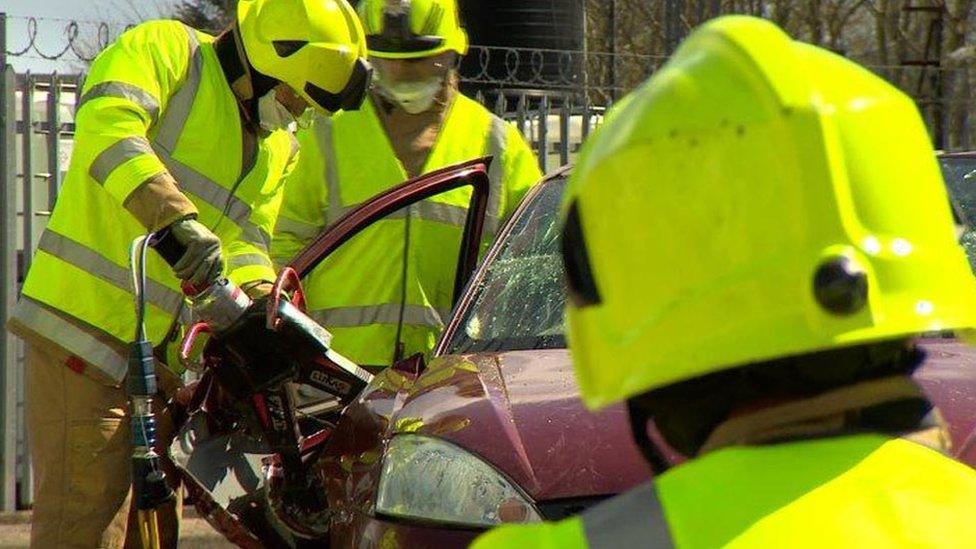
Opposition parties have accused the SNP of under-funding the fire service
The Fire Brigades Union questioned why it had taken five years since the formation of the national service for the scale of the financial problems to come to light.
Chris McGlone, who represents Scotland on the union's executive council, told the BBC Radio's Good Morning Scotland programme: "There's only two ways to find that money.
"Either there is significant extra capital investment by the government, or it's found from within the organisation.
"That quite simply means the closure of existing buildings, fire stations and the reduction of its existing assets, equipment and vehicles."
Community Safety Minister Annabelle Ewing welcomed Audit Scotland's "recognition of real progress" in reducing costs since the formation of the national service.
She said: "The SFRS inherited a substantial capital backlog from the eight legacy services and the Scottish government continues to work closely with the service to identify and provide the capital funding it needs for buildings, fleet and equipment.
"This year the Scottish government increased the spending capacity of the service by £15.5m to invest in transformation plans - and maintained an increase of £21.7m in capital funding announced in the 2017-18 budget.
"This investment, coupled with service transformation, will ensure that communities across Scotland remain protected from emerging risks and threats."
Staff and public safety
Opposition parties accused the SNP administration of under-funding the service.
Tory Liam Kerr said: "The SNP government has allowed a maintenance backlog of £400m to build up and that's entirely inexcusable.
"As firefighters themselves are warning, if equipment and vehicles aren't properly maintained, that will have implications for staff and public safety."
Scottish Labour's Daniel Johnson said: "The fact that the situation is so bad that fire engines may not even be able to run is a national scandal that could put lives at risk.
"Nationalist ministers must urgently explain how they are going to bridge this funding gap and give our brave firefighters the support they need and deserve."
- Published13 April 2018
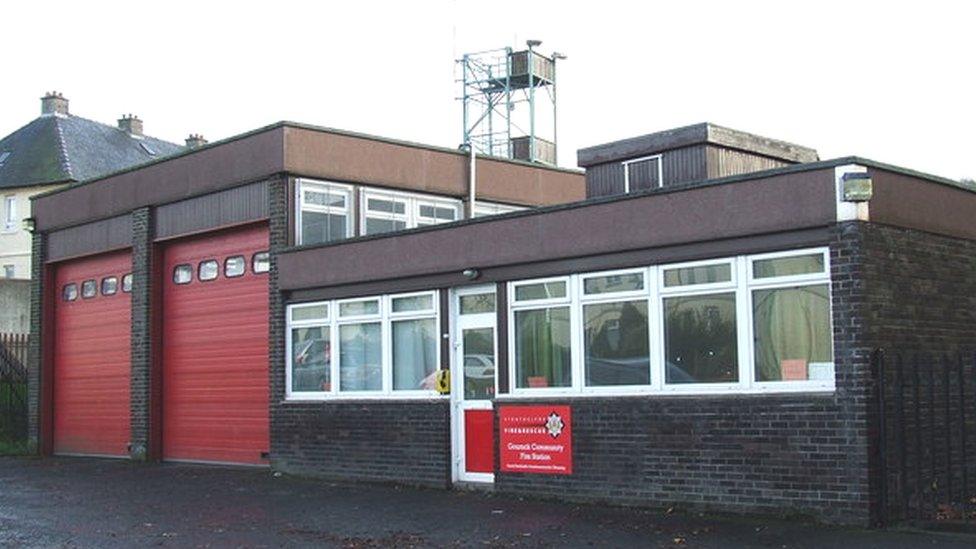
- Published1 April 2018
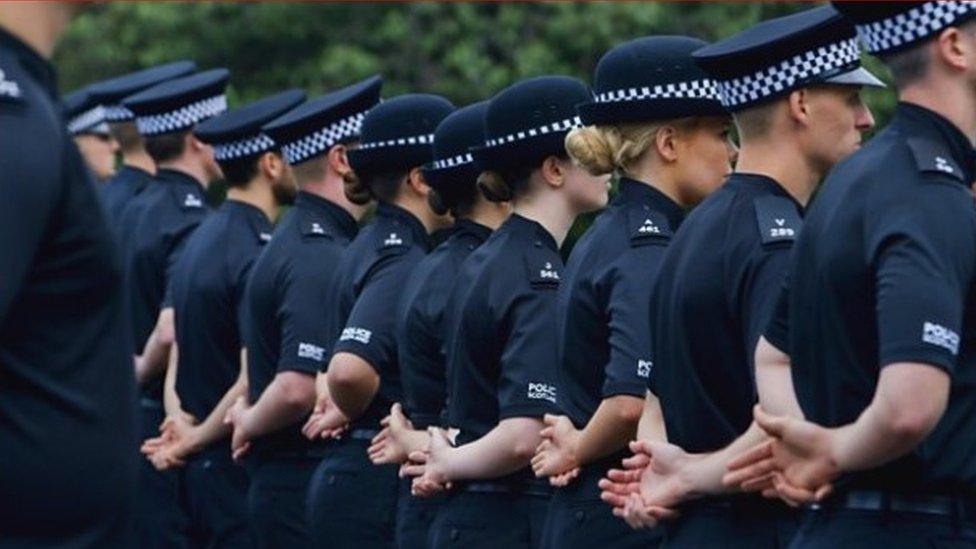
- Published26 April 2018
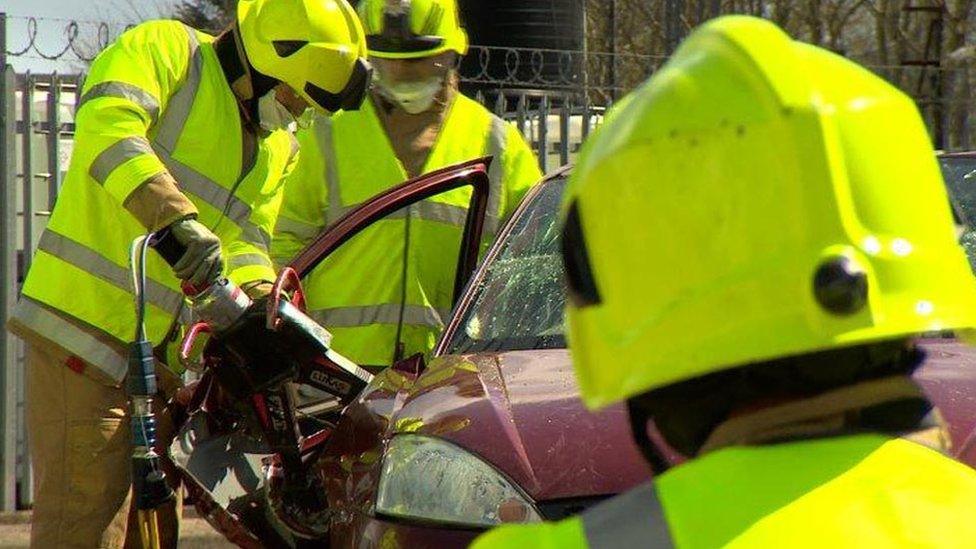
- Published19 February 2018
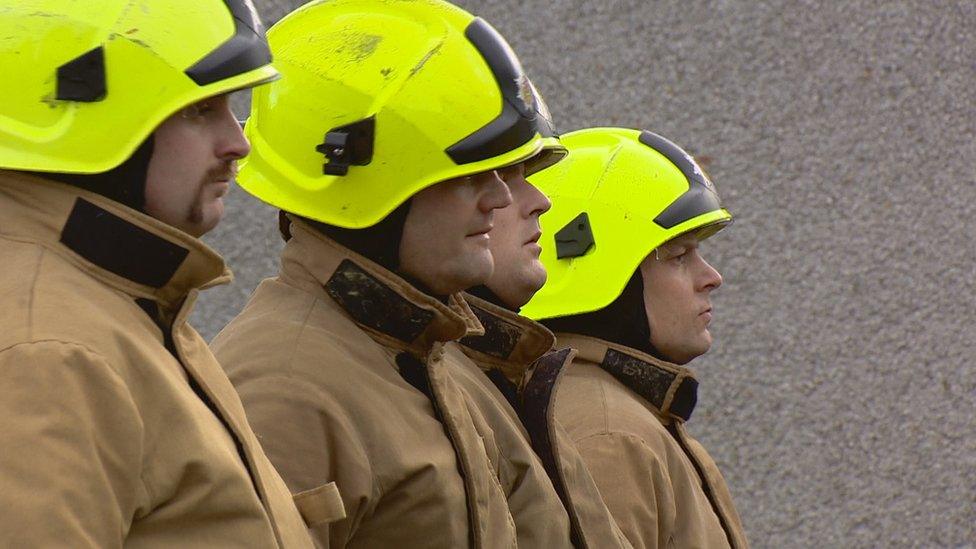
- Published25 October 2017
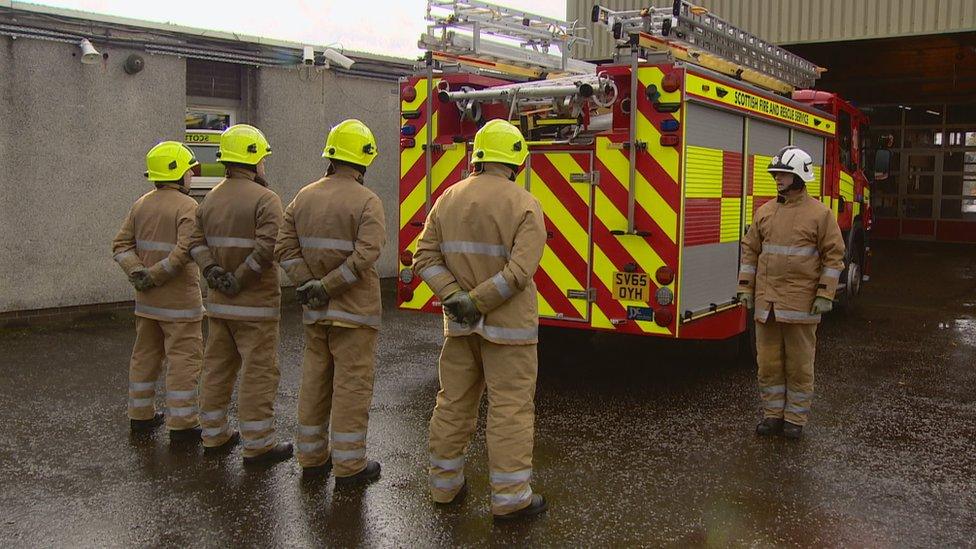
- Published19 August 2016
